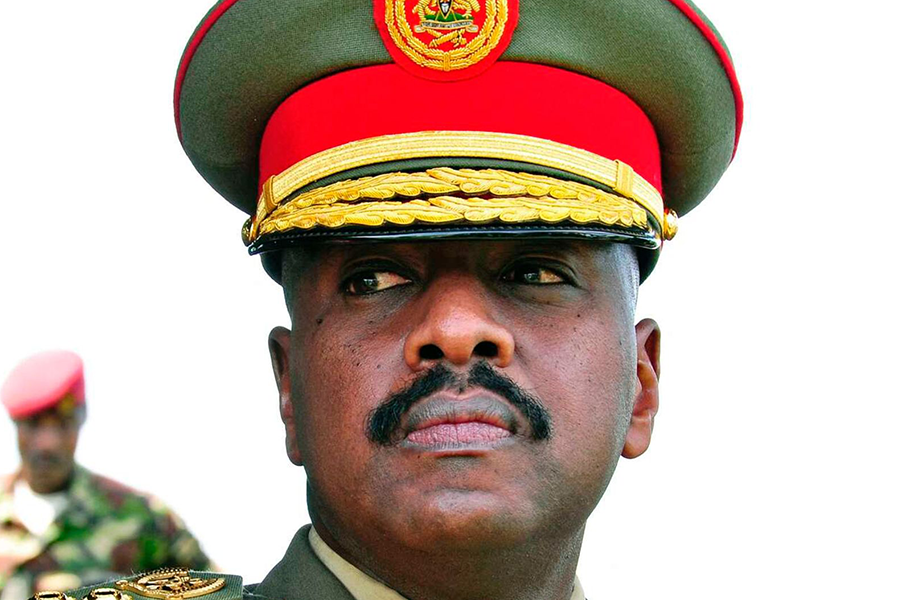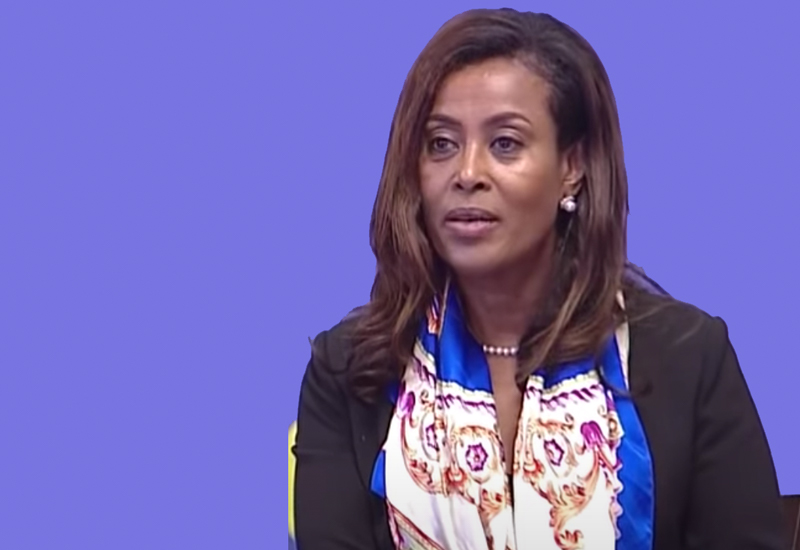
Fortune News | Oct 24,2020
Nov 2 , 2024
By Kedibone Phago (PhD) , Sysman Motloung (PhD)
Americans are set to cast their votes on Tuesday, November 5, in a presidential race that has gripped the country — and the world — with its razor-thin margins. According to the latest polls, Vice President Kamala Harris, the Democratic nominee, holds a slight one-point lead over Republican and former President Donald Trump. The outcome remains uncertain, and the stakes are high for the United States and countries across the Atlantic, particularly in Africa.
During his previous administration, Donald Trump's domestic and foreign policy positions largely prioritised the U.S. He focused intensely on growing the American economy, often against a backdrop of threats to reduce funding for international bodies like the World Health Organisation (WHO) and NATO. If re-elected, his focus on the economy, immigration, conflicts, and climate change will be even more aggressive.
The 2024 U.S. election is also deeply entwined with issues of racism, sexism, and reproductive rights. Critics accuse Trump of embodying values that undermine progress in these areas, pointing to his role in disrupting abortion rights in the U.S. He counters by asserting that he protects women through his stance on illegal border crossings and crime reduction. Harris champions the restoration of reproductive rights, including access to abortion, positioning herself as a defender of women's rights.
For Africa, two key issues stand out.
The first is the African Growth & Opportunity Act (AGOA), a trade agreement that grants African countries duty-free access to U.S. markets. Several African countries, such as South Africa, are major beneficiaries of AGOA, and their participation is crucial to the agreement's effectiveness. Excluding them from AGOA would be both meaningless and counterproductive. However, a Trump presidency might threaten this agreement, which could have significant repercussions for trade relations.
The second issue revolves around geopolitical alliances. The U.S. is a main trading partner for many African countries. A Trump presidency could pressure some African countries to align more closely with U.S. allies to maintain favourable relations. This could put immense pressure on countries to choose sides, affecting their foreign policies and alliances.
Kamala Harris is expected to maintain many of the policies of the Biden administration. Having visited Africa, she has projected a positive view of the continent. Harris is likely to support the continuation of AGOA with eligible African states. Her administration would probably focus on strengthening diplomatic and economic ties with African countries.
The political discourse has become increasingly heated. Harris has described Trump as "unhinged," a "fascist," and even compared him to Hitler. Trump has retorted by labelling Harris a fascist. For observers in Africa, this rhetoric is reminiscent of their own political landscape, where terms like "rented black," "anti-revolutionary," and thieves are commonly used. The Democratic Alliance in South Africa often calls on citizens to "save" the country by voting out the ruling party, similar to Harris urging Americans to "save the country" by voting Trump out.
Despite the fiery exchanges, the practical impact of the U.S. election on African countries may be marginal. U.S. foreign policy is generally consistent, regardless of who is in the White House. The U.S. will remain committed to maintaining bilateral and trade relations with African countries and will continue military cooperation with them.
Even if Trump is re-elected, despite his domestic stance on the issue, he is unlikely to push African countries to reverse their abortion rights. The U.S. presidency still expects them to address issues like the Financial Action Task Force greylisting. Collaboration on combating organised crime will persist.
Fundamentally, the United States has a vested interest in ensuring the U.S. dollar maintains its status as the world's reserve currency. Closely examining both candidates' platforms reveals a primary focus on domestic issues, with little emphasis on foreign policies that might negatively impact African countries. Life will go on, with much remaining the same.
As the world watches the unfolding of this closely contested election, Africans wait to see who will lead the last global superpower for four years, beginning in 2025. The outcome may not drastically alter the dynamics between the U.S. and African countries, but it will set the tone for future engagements. Time will tell how the next administration will shape its foreign policy toward Africa. For now, the continent watches and waits, mindful that while the players in Washington may change, the underlying relationships are built on long-standing interests and mutual benefits.
PUBLISHED ON
Nov 02,2024 [ VOL
25 , NO
1279]

Fortune News | Oct 24,2020

Viewpoints | Aug 31,2019

Verbatim | Oct 08,2022

Radar | Apr 13,2019

Radar | Aug 01,2020

Radar | Mar 16,2019

Commentaries | Aug 31,2019

Sponsored Contents | Mar 28,2022

Fortune News | Jun 10,2020

Fortune News | Nov 09,2019

My Opinion | 131974 Views | Aug 14,2021

My Opinion | 128363 Views | Aug 21,2021

My Opinion | 126301 Views | Sep 10,2021

My Opinion | 123917 Views | Aug 07,2021

Dec 22 , 2024 . By TIZITA SHEWAFERAW
Charged with transforming colossal state-owned enterprises into modern and competitiv...

Aug 18 , 2024 . By AKSAH ITALO
Although predictable Yonas Zerihun's job in the ride-hailing service is not immune to...

Jul 28 , 2024 . By TIZITA SHEWAFERAW
Unhabitual, perhaps too many, Samuel Gebreyohannes, 38, used to occasionally enjoy a couple of beers at breakfast. However, he recently swit...

Jul 13 , 2024 . By AKSAH ITALO
Investors who rely on tractors, trucks, and field vehicles for commuting, transporting commodities, and f...

Jul 5 , 2025
Six years ago, Ethiopia was the darling of international liberal commentators. A year...

Jun 28 , 2025
Meseret Damtie, the assertive auditor general, has never been shy about naming names...

Jun 21 , 2025
A well-worn adage says, “Budget is not destiny, but it is direction.” Examining t...

Jun 14 , 2025
Yet again, the Horn of Africa is bracing for trouble. A region already frayed by wars...

Jul 6 , 2025 . By BEZAWIT HULUAGER
The federal legislature gave Prime Minister Abiy Ahmed (PhD) what he wanted: a 1.9 tr...

Jul 6 , 2025 . By YITBAREK GETACHEW
In a city rising skyward at breakneck speed, a reckoning has arrived. Authorities in...

Jul 6 , 2025 . By NAHOM AYELE
A landmark directive from the Ministry of Finance signals a paradigm shift in the cou...

Jul 6 , 2025 . By NAHOM AYELE
Awash Bank has announced plans to establish a dedicated investment banking subsidiary...